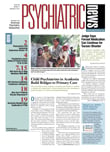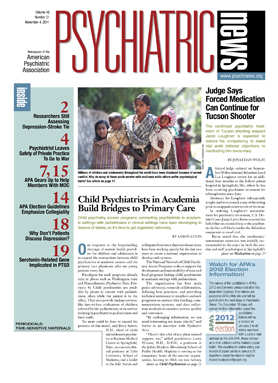APA and 39 other medical and health care organizations have warned Congress that reducing Medicare's funding of graduate medical education (GME), as some officials have proposed, is a quick-fix approach to addressing the nation's financial woes that has the potential to exacerbate the existing shortage of working physicians. This was the key message in an October 3 letter that the organizations sent to Congress's Joint Select Committee on Deficit Reduction, often referred to as the "supercommittee."
"We understand that everyone must do their part to reduce costs, but funding for physician training has been disproportionately targeted, in our opinion, at a time of unprecedented need," the coalition wrote. "This greatly imperils the current work of medical schools, teaching hospitals, and other training sites to improve the way they teach and train residents and implement new delivery and training models that reduce costs and improve outcomes."
According to the coalition, the current physician shortage is projected to reach 91,500 by the end of the decade and mushroom to more than 130,000 by 2025, a situation exacerbated by the aging of the huge baby-boom generation and the expected retirement of a substantial number of physicians in the next 10 years or so.
The coalition pointed out that this projected decline in the number of practicing physicians is occurring at a time when roughly 10,000 seniors are becoming eligible for Medicare every day.
Sandra Sexson, M.D., chair of APA's Council on Medical Education and Lifelong Learning and chief of the Medical College of Georgia's Division of Child, Adolescent, and Family Psychiatry, told Psychiatric News that the proposed funding cuts could prove particularly troublesome for psychiatry.
"While the proposed cut in Medicare funding for GME would be catastrophic across the board for postgraduate training, psychiatric training programs may potentially face even greater risk than other specialties," said Sexson. "Reimbursement patterns and other funding for mental health services have little chance of providing the alternate resources to fund training in psychiatry and its subspecialties. We in GME face a real threat to the number of positions offered in various programs, as well as entire training programs at some facilities."
APA officials also noted that the federal expansion of mental health benefits will likely lead to an increased demand for psychiatric services in the coming years.
"Patient improvements brought about by the mental health parity and health care reform laws require that a greater number of psychiatrists is available to serve the public's growing health needs," said APA Director of Government Relations Nicholas Meyers. "Cutting GME makes no sense."
The coalition's letter to the congressional supercommittee is posted at <www.psych.org/MainMenu/AdvocacyGovernmentRelations/GovernmentRelations/Provider-JSCDR-GME-Letter.aspx>.

